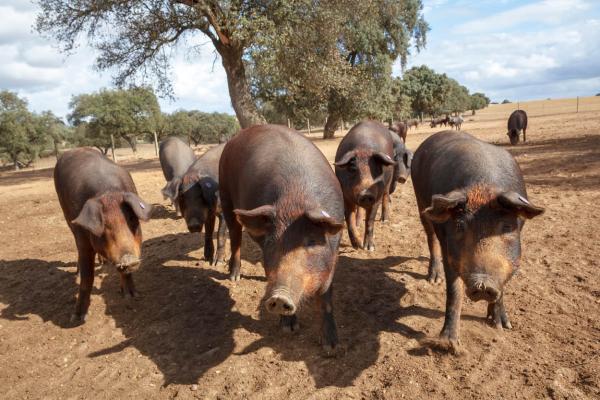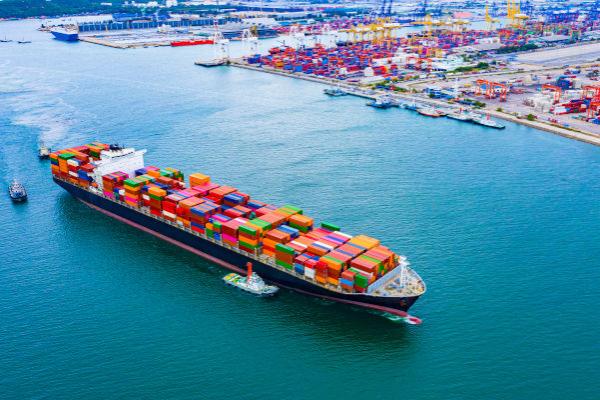Overview
The EU pigmeat sector had been in serious difficulty for a number of months due to a combination of factors, including:
- Covid-19 restrictions;
- reduced exports to China;
- the spread of African Swine Fever to more EU countries;
- increases in input costs.
The way forward required in-depth reflection, as prevailing difficulties went beyond the seasonal fluctuations of the pig cycle.
Against this background, Commissioner Wojciechowski announced the creation of a European Pigmeat Reflection Group. A series of joint meetings of the pigmeat section of the Civil Dialogue Group for Animal Products, and the animal products section of the CMO Expert Group took place from March 2022 to January 2023.
Reflection group meetings
A kick off meeting took place on 10 March 2022, effectively launching the group's work in the presence of Commissioner Wojciechowski.
Five plenary meetings were planned in 2022. Each meeting was dedicated to a specific topic and its output was shared on this webpage for the benefit of all. The five meeting reports contributed to the final report with 26 recommendations.
During 10 months of discussion, there were 65 presentations (34 stakeholders, 11 academic, 8 Member State authorities, 12 Commission representatives from the Directorates-General for Agriculture and Rural development, Competition, Health and Food Safety, Environment).
The topics were addressed under three major sub headings:
- socio-economic dynamics of the sector,
- environment and climate challenges,
- animal health and welfare considerations.
The agendas, minutes and documents relating to each meeting of European Pigmeat Reflection Group can be found on the civil dialogue group for animal products page.
Meeting dates:
- 10 March 2022
- 6 April 2022
- 25 May 2022
- 4 July 2022
- 12 September 2022
- 21 November 2022
- 18 January 2023: delivery of the final report.
First meeting: 6 April 2022
The first of these meetings took place online. There were over 130 participants and 12 presentations. The meeting focused on the sector’s socio-economic dynamics: structure of the sector across and within EU countries, export orientation, short supply chains, socio-economic relevance for rural areas, rural development measures for pigmeat, State aid and CAP strategic plans.
- 9 JUNE 2022
The first debate was guided by the following questions:
- Are there particular economic models that ensure resilience?
- To what extent does EU internal market balance need exports? Does export orientation increase the risk of crisis or does it play a role in hedging risks?
- What is the role of short supply chains in EU internal market balance? Do they help to mitigate risks?
- What is the added value of pig farming for rural areas? Are there threats to be mitigated?
- To what extent can structural measures help the pigmeat sector?
Second meeting: 25 May 2022
The second meeting took place online. It continued the discussion on the sector’s socio-economic dynamics (GIs, labelling, consumption trends and the food environment, organic production and risk management).
- 25 MAY 2022
The debate was guided by the following questions:
- To what extent do GIs add value to the pigmeat sector?
- What is the advantage of farming method labelling for pigmeat production? What are the constraints?
- Does origin labelling address consumers' expectations?
- Is a shift noticeable in consumer habits?
- To what extent does policy influence consumer purchasing actions?
- What are the challenges and opportunities of organic pig production?
- To what extent is risk hedging a private concern?
Third meeting: 4 July 2022
The third meeting took place online and opened a new chapter for discussion: environment and climate challenges. The meeting focused on farming methods, carbon farming and carbon credits, and emission and manure management.
- 14 JULY 2022
The third debate was guided by the following questions:
- To what extent can differentiated farming methods add value to the pigmeat sector?
- To what extent can differentiated farming methods address environment and climate challenges?
- Should certain farming methods be prohibited?
- Is carbon farming taken into account in pig farming?
- To what extent can carbon credits play a role in the pigmeat sector?
- To what extent can pig farming mitigate emissions?
- To what extent can manure management add value in the pigmeat sector?
Fourth meeting: 12 September 2022
The fourth plenary meeting took place online to complete the review on the sector’s environmental and climate challenges by examining the issues of biogas and research and innovation.
- 28 SEPTEMBER 2022
The fourth debate was guided by the following questions:
- To which extent can biogas add value to the pigmeat sector?
- To which extent can biogas address environment and climate challenges?
- Are there pitfalls with biogas that should be avoided?
- Is the pigmeat sector kept actively informed of research and innovation in pig farming?
- What are the benefits expected from R&I projects for the pigmeat sector?
- What’s the expected timeline of R&I projects before they can effectively apply to pig farming?
- What’s the cost of implementing R&I projects for pig farming?
Fifth meeting: 21 November 2022
The fifth plenary meeting took place online to discuss animal health and welfare issues. The meeting focused on ASF, animal welfare and animal transport as well as on research and innovation in the field of animal health and welfare.
- 7 OCTOBER 2022
The fifth debate was guided by the following questions:
- What are the main challenges to keep pigs healthy on the farm? How important are multifactorial infectious diseases compared to ASF?
- What concrete actions on the farm prove efficient for pig health? What are the most efficient steps to prevent ASF outbreaks in farms?
- Are there measures to prevent citizens from spreading ASF?
- How realistic are the prospects of having a vaccine against ASF? Are the pros outweighing the cons?
- What concrete actions prove the most efficient for animal welfare at farm level, in slaughterhouses and during transport?
- Can animal welfare and farm efficiency go hand in hand?
Sixth meeting: 18 January 2023
A closing meeting took place online with the presence of Commissioner Wojciechowski. The main aim of the meeting was to present and discuss the Group’s final report with recommendations and hand it over to Commissioner Wojciechowski.
- 17 JANUARY 2023
Documents
- 20 MARCH 2023
- 24 JANUARY 2023
- 18 JANUARY 2023
- 10 MARCH 2022
Related links
Information on pork production, legal bases, market monitoring, trade, carcass classification, price reporting, regulation of supply of PDO/PGI ham.
Statistics on weekly and world pig prices, pigmeat remainders, EU historical prices, and EU production and trade.


